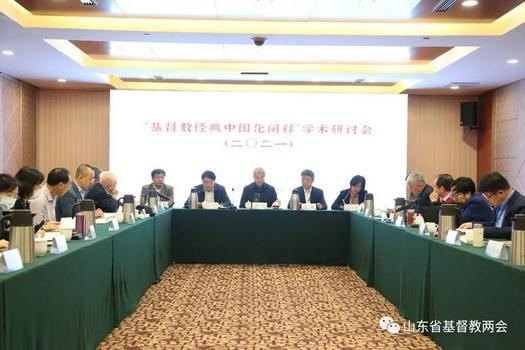Recently, the Textbook on the Interpretation of Christianity Through Chinese Classics complied by the Central Institute of Socialism was completed.
On October 16, an academic seminar on the new textbook was co-hosted by the Central Institute of Socialism and Shandong CC&TSPM in Jinan, Shandong Province.
According to China Ethnic News, the work on the Textbook on the Interpretation of Christianity Through Chinese Classics started in 2019 and absorbed the opinions of CCC&TSPM, local churches, and seminaries.
Zhang Yina, head of the writing team and associate professor of the staff room of the ethnic and religious affairs department of the Central Institute of Socialism, said that there were two basic compiling principles.
The first principle stuck to mutual exchanges and learning among civilizations. One of the examples was that Jesuit missionary Matteo Ricci and his Chinese friend Xu Guangqi built a bridge for cultural exchanges between China and the West in the late Ming Dynasty and the early Qing Dynasty.
Studying Chinese classics including The Classic of Poetry, The Book of Documents, The Doctrine of the Mean, and I Ching, Racci proved that Confucianism and Jesus had something in common.
Knowing the difference between the concept of religion in the West and China, Xu insisted that there were different routes leading to the same goal, advocating for the mutual learning and integration between Chinese and western culture. Such examples are included in the book.
The second principle lay in inspiring the religion with the core socialist values and fostering the fusion of religious doctrines with Chinese culture.
The seminar consisted of two parts, keynote speeches and discussions on the textbook.
In the discussion session, five professors talked about the theoretical approaches, possibility, and basic ideology of interpreting Christianity through Chinese classics, the text and philosophical interpretation of Christianity, and the connection of I Ching with the Christian faith.












